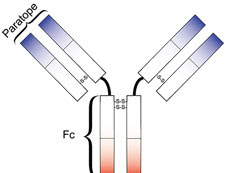
| Cancer immunotherapy continues to capture the public's interest and researchers' imaginations. That sentiment is reflected in the most popular posts from Cancer Currents for the first half of 2018. Three of the top five posts cover the progress being made in, and the unresolved questions about, immune-based cancer treatments. In case you missed them, or want to read them again, here are the five most-read posts so far this year. | ||
 | Can Immunotherapy Succeed in Glioblastoma? Despite continued efforts to develop new therapies for glioblastoma, none have been able to increase how long patients live. Even so, researchers are hopeful that immunotherapy might be able to reverse that trend. | |
 | Oncolytic Virus Therapy: Using Tumor-Targeting Viruses to Treat Cancer A small but growing number of patients with cancer are being treated with viruses that infect and kill tumor cells. Research now suggests that these treatments also work against cancer by spurring an immune response. | |
 | Study Shows Experimental Screening Test Can Detect Endometrial and Ovarian Cancers Scientists have struggled to come up with a simple test to detect endometrial and ovarian cancers early, when they are most likely to respond to treatment. Can a liquid biopsy test called PapSEEK change that? | |
 | Cancer Immunotherapy Targets Two Proteins that Block Immune Response Could a newly developed type of immunotherapy drug, called a Y-trap, be more effective than immune checkpoint inhibitors? Early studies suggest that's a possibility. | |
 | Larotrectinib Shows Promise, Regardless of Cancer Type In a series of three small clinical trials, an investigational targeted drug called larotrectinib shrank tumors in both children and adults with a wide variety of cancer types. | |
If you like what you're reading, and think a colleague, friend, or family member might enjoy staying up to date on the latest in cancer research, please encourage them to subscribe to Cancer Currents. Enjoy the rest of the summer and thanks for reading our blog. The Cancer Currents Editorial Team | ||
































No hay comentarios:
Publicar un comentario